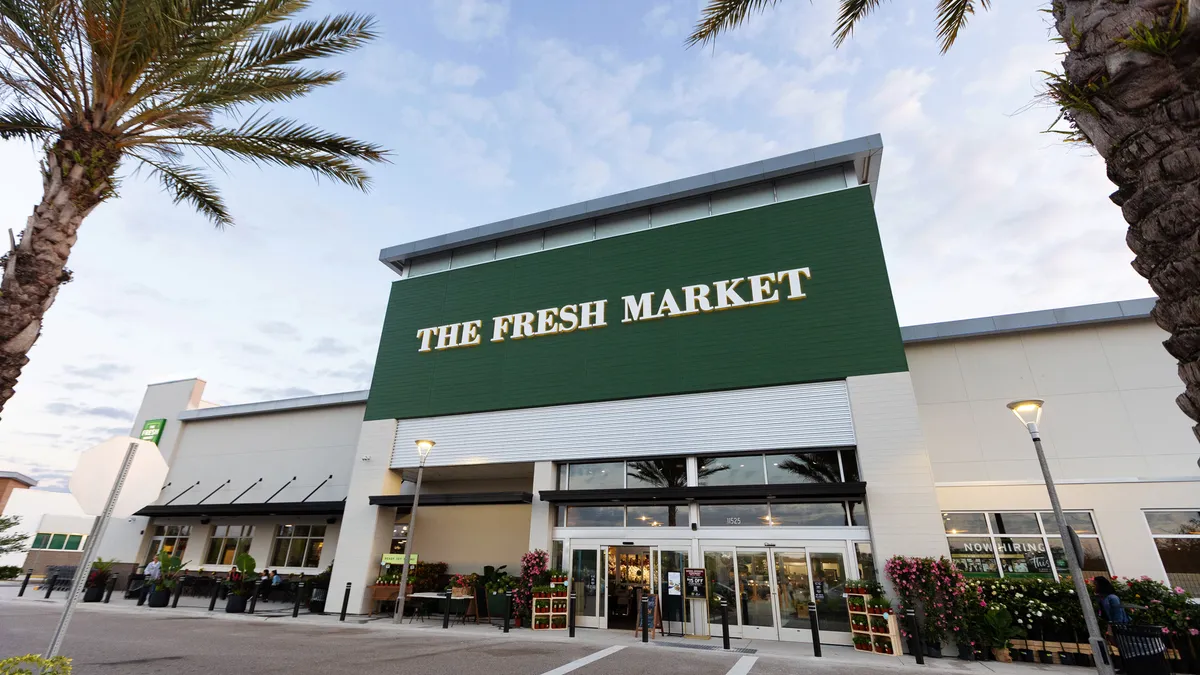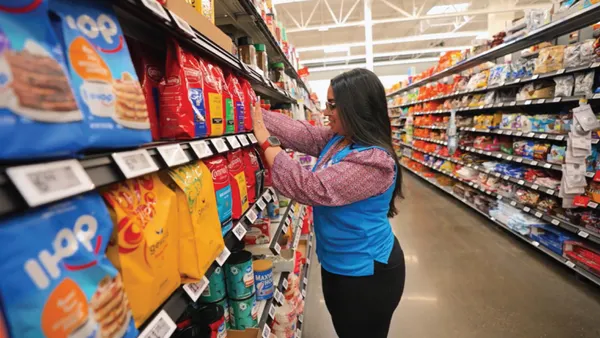Dive Brief:
- Pennsylvania-based Weis Markets has lowered prices on more than 7,000 products, the company announced last week.
- The reduced prices can be found on Weis brand products throughout the store in all departments from produce, dairy and prepared foods to beauty products and household items.
- The new “Low, Low Price” program is the chain’s most ambitious price reduction program ever and comes as competition with local rivals Giant and Wegmans as well as discount grocers like Aldi, Save-A-Lot and Lidl heats up across the industry. “We understand saving money has never been more important for our customers,” said Richard Gunn, Weis Markets senior vice president of merchandising and marketing, in a statement. “That’s why we are making a multi-million-dollar investment to provide the lowest price in the market."
Dive Insight:
It’s January and in addition to losing weight, saving money and setting a budget are top priorities for many shoppers. Weis Markets, which operates 206 stores in seven states, is hoping these price cuts will attract shoppers who are looking to start the year with savings in mind. Most importantly, the company will hope the initiative will keep shoppers from defecting to low-price competitors like Walmart and Aldi.
Early last year, Weis Markets announced an $101 million investment in stores and other upgrades, including technology. In November, the company posted a profit of $14.2 million, more than 200% higher than the $4.4 million in the same quarter for the same quarter in 2017. The success of that investment may be behind the evolution of its pricing structure and the company’s focus on growing its brand.
The $101 million growth plan also called for the construction of new stores, pharmacies and a fuel center as well as 20 store remodels. The retailer is also expanding its click-and-collect service, which is now available at about 80 stores.
Sweeping price cuts have become a way for retailers to project value as industry competition intensifies. Kroger has publicized recent price cuts, while e-grocer Peapod last year lowered prices on thousands of products. Amazon has chipped away at Whole Foods "Whole Paycheck" image with rounds of price reductions on everything from salmon to tomato paste.
Inflation has been creeping back into the industry, and executives at companies like United Natural Foods, Inc. believe this will lift fortunes this year. The United States Department of Agriculture predicts that food prices will increase between 1 and 2 percent in 2019, with numerous factors, including high oil and gas prices, contributing to the rise. Fresh produce and cereal will see the biggest increases, according to the USDA.
Weis's price cuts send a strong message to consumers. It's also a necessary one with low-price competitors like Aldi expanding their online and offline reach while simultaneously sprucing up their stores. Weis's key mission here is to continue serving as a primary destination for its most loyal customers.













